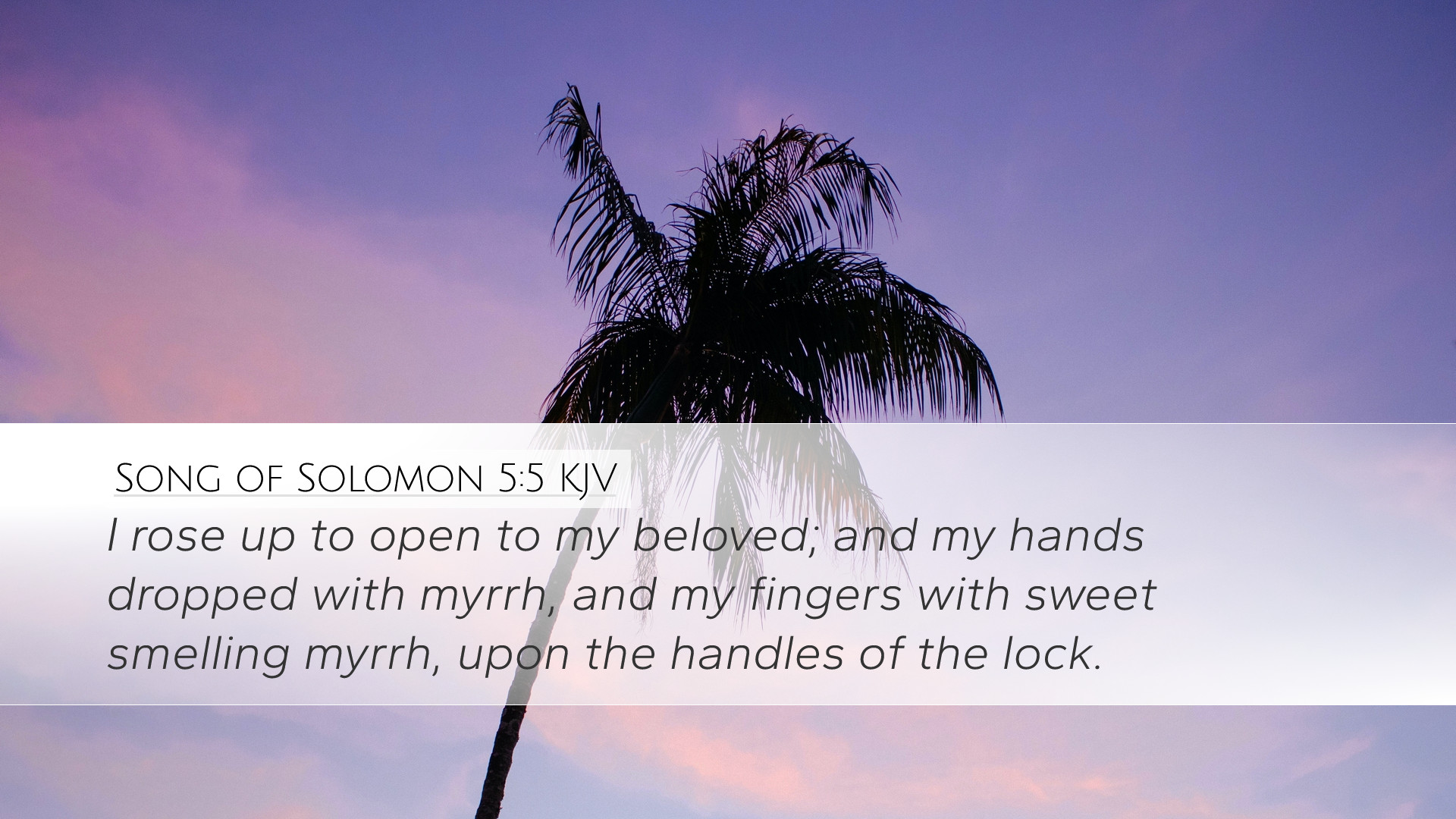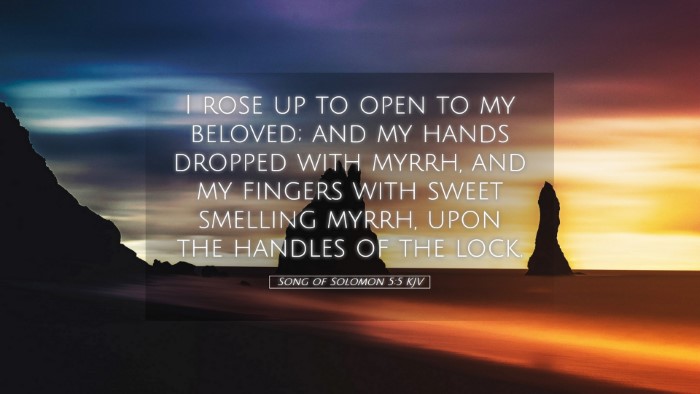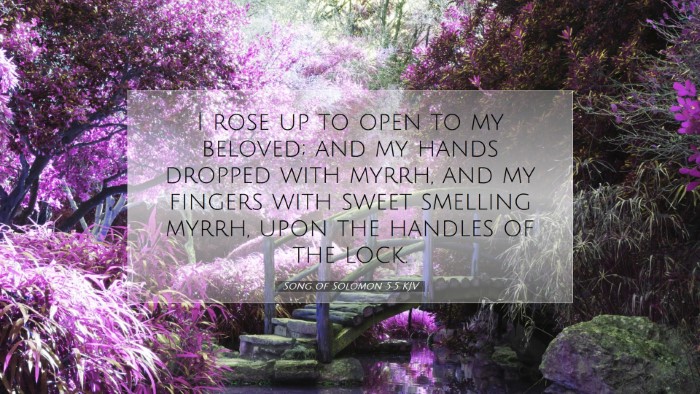Commentary on Song of Solomon 5:5
Song of Solomon 5:5 states:
"I rose up to open to my beloved; and my hands dropped with myrrh, and my fingers with sweet smelling myrrh, upon the handles of the lock."
This verse provides a rich tapestry of symbolism and meaning, offering insights into the relationship dynamics portrayed in the Song of Solomon. Below, we compile insights from notable public domain commentaries on this verse, focusing on the themes of longing, love, and the spiritual implications of the imagery presented.
Overview of the Jewish Wedding Context
The Song of Solomon is traditionally understood as an allegorical representation of the relationship between God and His people, coupled with the celebration of romantic love. Matthew Henry elaborates on the notion that the entire book reflects the intensity of love in the context of covenant relationships.
Exegesis and Literal Interpretation
Albert Barnes, in his commentary, emphasizes the literal actions taking place in this verse. The act of rising to open to a beloved underscores the anticipation and readiness that characterizes genuine love. The myrrh, noted for its pleasant fragrance, serves to deepen the intimacy of the scene. Barnes points out that this action signifies both physical and spiritual preparation to welcome love.
Symbolism of Myrrh
The inclusion of myrrh can be interpreted on multiple levels:
- Physical Representation: Myrrh is used for anointing and is also a symbol of healing. This indicates that love can bring restoration and wholeness.
- Spiritual Significance: Myrrh is often associated with Christ, especially in the context of His birth and death. Adam Clarke suggests that this imagery may reflect the sacrificial aspect of love, denoting that true love often involves a willingness to sacrifice and suffer for one another.
The Lock and Access
In the imagery of the "handles of the lock," we see profound theological implications. The lock symbolizes a barrier between the beloved and the lover, suggesting that access requires effort and intention. Matthew Henry comments on the idea of barriers in relationships—both spiritual and physical. The act of the beloved rising to open the door illustrates the earnest desire to bridge those gaps.
Spiritual Application
This scripture invites readers to ponder their own relationship with the Divine:
- Desire for God: Just as the beloved rises to open the door, believers are encouraged to seek God earnestly. This evokes a dynamic where prayer and spiritual discipline become means to foster closeness with the Creator.
- Preparedness: The myrrh metaphorically represents the importance of preparation in spiritual life. As one prepares their heart and mind to meet God, they reflect on the richness of what it means to be in communion with the Divine.
The Theme of Yearning
Yearning is a persistent theme throughout the Song of Solomon. The act of rising implies a proactive pursuit. Adam Clarke notes that the beloved's actions are marked by urgency and desire, which serves as an exhortation for the faithful to demonstrate a similar fervor in their spiritual endeavors.
Conclusion
In summary, Song of Solomon 5:5 encapsulates a moment rich with sensory details that evoke deep emotional and spiritual truths. The commentary from respected figures like Matthew Henry, Albert Barnes, and Adam Clarke guides readers in unpacking its multi-layered meanings. Whether viewed through the lens of romantic love or framed in a spiritual context, the verse calls forth a response of longing, preparation, and the pursuit of intimacy—both horizontally in relationships and vertically in our connection with God.


